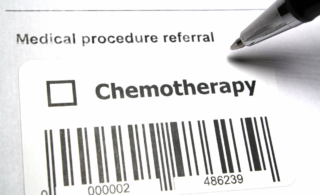
Let's Nail Breast Cancer - Help support our urgent appeal on the 19th - 20th May 2024
Let's Nail Breast Cancer - Help support our urgent appeal on the 19th - 20th May 2024
Let's Nail Breast Cancer - Help support our urgent appeal on the 19th - 20th May 2024
Let's Nail Breast Cancer - Help support our urgent appeal on the 19th - 20th May 2024
Let's Nail Breast Cancer - Help support our urgent appeal on the 19th - 20th May 2024
The first chemotherapy appointment is especially daunting so we’ve put together a quick checklist list from our experience as patients, of what to expect together with some tips to make it more comfortable.
- Wear something comfortable with easy access to your port, PICC line or cannula. You may find that you get hot and cold during the treatment so it is worth wearing layers that you take off/put on to ensure you are comfortable.
- Ask someone to take you and bring you home in case you don’t feel up to driving or if you need help on public transport.
- Take your hospital chemo book that the hospital needs to fill in.
- Relax. It can be stressful going to hospital for chemo, but there are ways to help you feel less stressed. You could download a meditation app onto your phone and listen to that with headphones, you could try doing some mindfulness exercises or breathing exercises.
- You may be sent home with more anti-sickness tablets and steroids. Make sure you know the instructions for taking these.
- Don’t forget your chemo bag.
- Drink lots and lots of water on the day and for 24 hours after.
- The time that you spend at the hospital will be longer than the time you are actually having the chemo infusion. Much of the time is taken up with pre-chemo tests such as blood tests, weight, maybe an echocardiogram (some women will need to have an echocardiogram prior to and during their chemotherapy especially while need Herceptin or Phesgo). You will also need to hang around waiting for medication from the pharmacy to take home. If you’re doing the coldcap then you’ll need to be prepared for that which can take a while. So allow for a much longer length of time that just the time of the infusion.
- Everyone reacts differently to chemo. One of our Twitter followers recommended taking a sick bucket in the car for the journey home just in case sickness happens before you arrive home. Don’t worry about this. It doesn’t happen to everyone, and the chemo team give you a lot of anti-sickness medication. But it might be best to be prepared. On the other hand, a lot of people find that there is a lag between having chemo and the nausea setting in – you can even feel ok for the rest of the chemo day and only feel nauseous when you wake up the following day. And some people don’t feel nauseous at all. Everyone is different.
It will be OK! And remember that each chemo cycle is one down and you are closer to the end of treatment.
If you need to have immunity boosting injections – holding a bag of frozen veg on the area to numb it before you do the injection, is said to help (thanks to one of our Twitter followers for this gem of advice).
Further information
Future Dreams hold a range of support groups, classes, workshops and events to help you and your carers during your breast cancer diagnosis. These are held both online and in person at the London-based Future Dreams House. To see what’s on offer and to book your place, see here.
To return to the homepage of our Information Hub, click here where you can access more helpful information, practical advice, personal stories and more.
Reviewed February 2023
The information and content provided on this page has been written from a patient’s perspective then reviewed by a breast care nurse and it is intended for information and educational purposes only. It is not intended to substitute for professional medical advice. Please contact your medical team for advice on anything covered in this article.
Share

Support awareness research
Donate to those touched by BREAST cancer
Sylvie and Danielle began Future Dreams with just £100 in 2008. They believed nobody should face breast cancer alone. Their legacy lives on in Future Dreams House. We couldn’t continue to fund support services for those touched by breast cancer, raise awareness of breast cancer and promote early diagnosis and advance research into secondary breast cancer without your help. Please consider partnering with us or making a donation.




